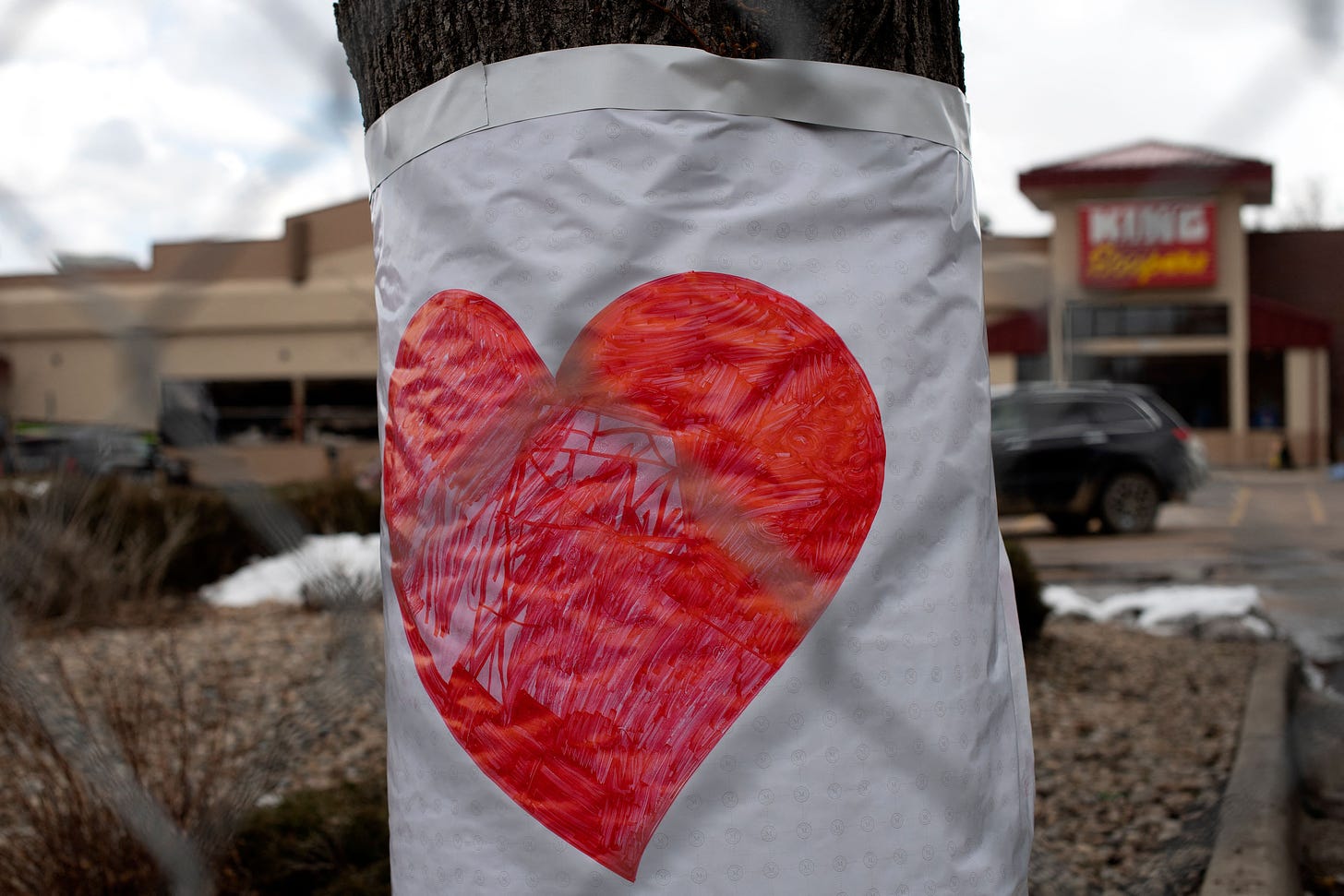
What can you say that hasn’t been said a hundred times, a thousand times, in recent weeks, and stretching back years? As a reporter, how do you try to convey what is new, new victims, new locations, new motives, when the real story isn’t new at all. It’s the story of our country’s inability to confront the plague of gun violence.
There is something quite haunting that as we finally start turning the corner on another plague, one that has killed with stealth and microscopic anonymity, we should once again have to confront the bloody rending of our social fabric with active shooter alerts and mass casualty events. Everything that I can think of writing, of the need for common sense gun laws, of how the United States is off the charts among countries of similar wealth in its rate of gun violence, of the power of the gun lobbies, about the hypocrisy of a country that makes guns easy to get and voting more difficult, all of that has been said, is being said, and will be said by others with far more eloquence and credibility than I.
But I cannot remain silent. I cannot accept that this is acceptable. I cannot let people’s lives be rounded into statistics. It is easy to be cynical. It is easy to think that nothing will change. It is easy to post a few sad comments, offer thoughts and prayers, and then sit on the sidelines. That is what the forces who cling to the status quo count on happening. They preach division and fear, confident in the precedent that they can outlast those who don’t think death by guns should be a normal, everyday occurrence.
Three years ago today —in an odd coincidence of timing—I sat down for a roundtable discussion with students from Marjory Stoneman Douglas High School in Parkland, Florida. The young adults, just 17 and 18 years of age at the time, had taken on the role of activists. Our conversation took place in the nation’s capital, one day before the March For Our Lives —a protest they had organized. The scourge of gun violence had torn apart their school and killed their classmates, but in the aftermath they sought to raise awareness and change the country for the better. The hope back then, like the hope after Sandy Hook, or the Pulse Nightclub, or Las Vegas, Columbine, or any of countless other such events, was that this time would be different. That they could be the last members in a so-called “mass shooting” generation. The young people filled me with hope, as they often do. I could feel their idealism; it was fortified by resolve. They knew the odds. They understood how this usually plays out. But they were determined that they could make a change.
I believe it is too facile a determination to say nothing will ever change. I have lived long enough to see seemingly intractable social problems suddenly break towards resolution and hope. Every moment is different, with different political currents, actors, and broader contexts. Idealists have made great progress over the course of human history. Without believing the impossible is possible, we would be trapped in a perpetual status quo.
What is required is realizing that the gun violence crisis is like a lot of crises we face. It is made more of a crisis by our political environment in which national Republican leaders, with their NRA allies, have stoked animosity and grievances as a tactic of wielding power. Too many Democratic officeholders have gone along with them. A system that could make progress on gun violence, where well meaning people who see issues from different perspectives but believe in problem solving and promoting the health of a broad, diverse American citizenry, could come together, would be a threat to those who reign by promoting antipathy over accommodation. But it could be popular. There seem to be many gun control measures that have broad support, such as waiting periods and background checks.
The hypocrisy of those who claim to be “pro life” is impossible to stomach. But I suspect the path to action lies not in pointing out the obvious failings of the powerful. It lies in building a movement of the people, community by community. It will likely lie in creating pressure on corporations that support politicians who stand in the way of progress. It lies in education and communication. And it lies in recognizing that, while high-profile massacres receive most of the attention, guns kill in all manners, including domestic violence and suicide.
It is easy to feel despair on days like today, amid the heartbreak. But I learned an important lesson covering a young Dr. Martin Luther King early in his leadership of the Civil Rights movement. Back then, his victories were modest and far outnumbered by his defeats. But he believed that even if the road may be so long that progress seems nonexistent, even when the forces arrayed against you may seem so powerful that they are insurmountable, even though there is very little hope to point to, you don’t give up if you believe in the justice of your cause.
—Dan



thank you ALL. i had sworn never to read online comments again, sick to death of the snarkiness, mean-spiritedness, and hatred they always seemed to foster. you folks have changed that. i still don’t read comments elsewhere, but yours are thoughtful, helpful, insightful and caring... as i would expect from people who admire and support Dan Rather. thanks!
This is a scourge that has to change. Your words from Dr. King ring so true with this seemingly intractable situation. Courage.